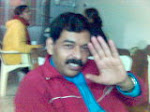Navanethem Pillay, UN High Commissioner for Human Rights, stresses need
to tackle discrimination and inequality, and to prevent genocide
as 9th Session of the Human Rights Council opens
Geneva, 8 September 2008
The new United Nations High Commissioner for Human Rights Navi Pillay, in her maiden speech to States attending the Human Rights Council on 8 September, highlighted the need to tackle discrimination and inequality, and urged greater efforts to prevent genocide, which she described as “the ultimate form of discrimination”.
Ms. Pillay, who spent eight years as a judge on the Rwanda Tribunal and five on the International Criminal Court in The Hague before taking up her post as High Commissioner on 1 September, noted that 2008 contained a number of important human rights milestones -- including the sixtieth anniversaries of the Genocide Convention on 9 December, and of the Universal Declaration of Human Rights the following day.
She reminded delegates attending the opening of the ninth session of the Human Rights Council in Geneva that both the Universal Declaration and the Genocide Convention “grew out of the Holocaust, but we have yet to learn the lesson of the Holocaust, as genocide continues”.
Drawing on her extensive experience as a leading member of the emerging international justice system dealing with war crimes and crimes against humanity, Ms. Pillay made a powerful call for a stronger focus on preventing genocide, as well as the “cycles of violence, the mobilization of fear and the political exploitation of difference – ethnic, racial and religious difference” that lead to it.
“Genocide is the ultimate form of discrimination”, she said. “We must all do everything in our power to prevent it. What I learned as a judge on the Rwanda Tribunal about the way in which one human being can abuse another will haunt me forever.”
Ms. Pillay, who was herself the victim of both racial and gender discrimination in Apartheid South Africa, said that development, security, peace and justice are all undermined “when discrimination and inequality -- both in blatant and subtle ways -- are allowed to fester and to poison harmonious coexistence”.
She urged States not to let “diverging points of view” deter them from taking part in a key anti-racism review conference (the Durban Review Conference) scheduled for April 2009. The conference process has been the subject of ferocious, and often distorted, criticism by certain lobby groups focused on single issues. “I do not believe that ‘all or nothing’ is the right approach to affirm one’s principles or to win an argument”, she said. “… The process will certainly benefit from active participation by all States … Should differences be allowed to become pretexts for inaction, the hopes and aspirations of the many victims of intolerance would be dashed perhaps irreparably.”
She said that Nelson Mandela had taught her that “far from being appeasement, coming to terms with other people’s experiences and points of view may serve the interest of justice better than strategies that leave no room for negotiation”.
In her speech, Ms. Pillay also noted that “rights to freedom of ex-pression, association and assembly, which are indispensable to the functioning of civil society, have come under sustained attack in all regions of the world”, and said that the press continued to be muzzled in too many countries.
Fully aware of the deficiency of my intelligence, I concentrate my attention on Sankatmochan Pavan Kumar and humbly ask for prosperity, strength, intelligence and true knowledge to relieve me of all blemishes, causing pain.
9.9.08
Subscribe to:
Post Comments (Atom)
Blog Archive
About Me

- BIHAR DESK
- I am a journalist and a social activist with a strong rural background. I work with a national level media house that has its publication from New Delhi, Mumbai, and Patna and caters to the news need of the State. I am always willing to work for the economically underprivileged people of the nation. bihardesk@gmail.com

No comments:
Post a Comment